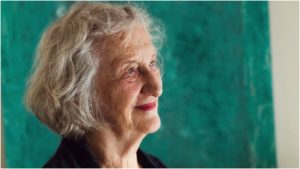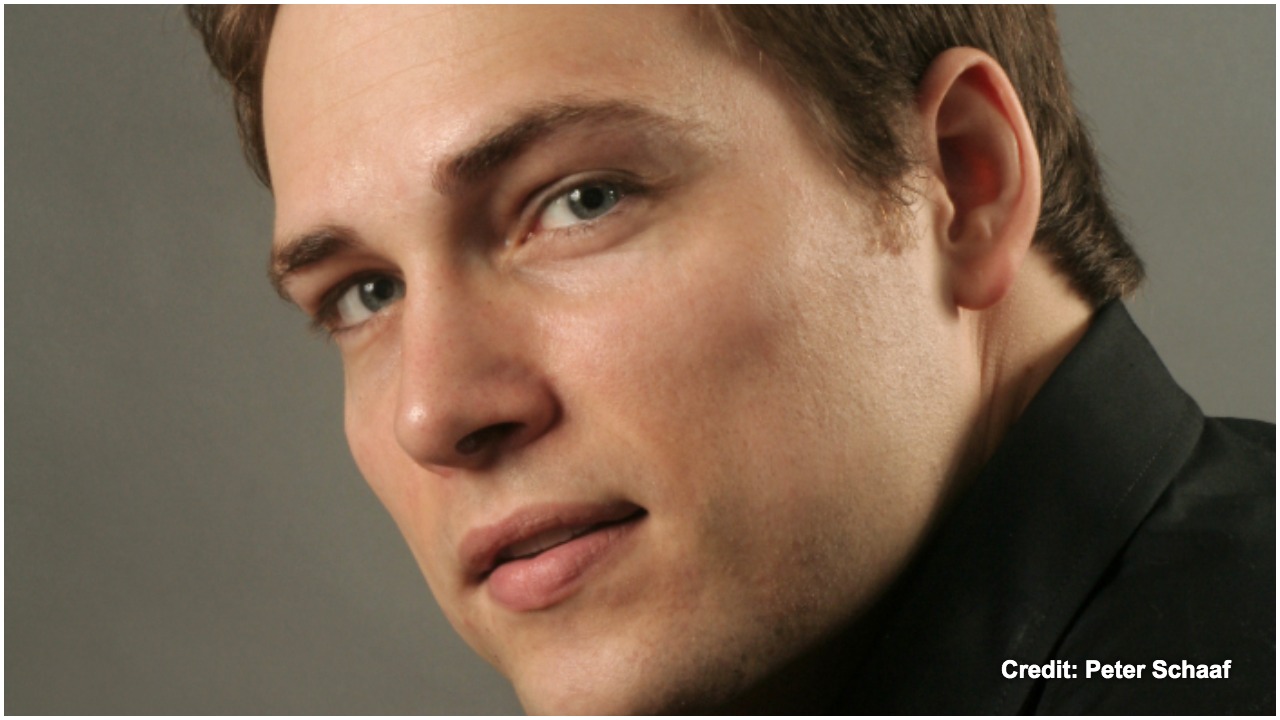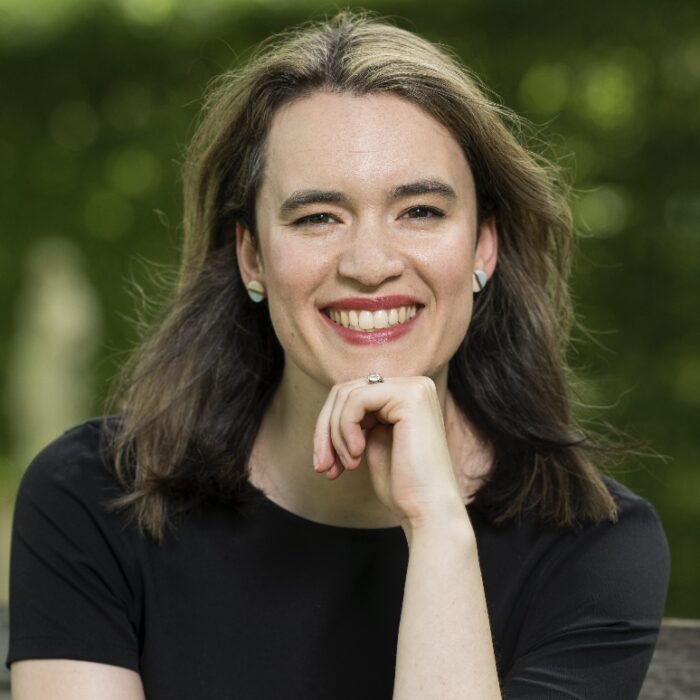
Q & A: Thea Musgrave On her Career Achievements & Her 90th Birthday
By Francisco SalazarFor years, British composer Thea Musgrave has been a major figure in the classical world. She has been a pioneer of the “dramatic-abstract” in the contemporary musical landscape and has composed over 160 pieces, including 13 operas, 11 choral works, and 21 orchestral works.
Musgrave recently celebrated her 90th birthday with a concert that included many of her renown works and a world premiere. This season, her birthday will be celebrated throughout the world showcasing some of her greatest pieces.
OperaWire had a chance to speak with the legend on her career highlights and her recent 90th birthday celebration.
OperaWire: At the age of 90, what do you believe are some of your greatest accomplishments throughout your career?
Thea Musgrave: To have survived to my 90th birthday!!! To have had all of my works performed by such amazingly talented and accomplished artists and groups – from whom I continually learn! To still be composing, and to have had the chance to clarify what I really want to say with my music at this august age and hopefully, to be able to say it with the increased skill and conviction of a long and fulfilling career.
OW: Tell me about “La Vida es Sueño.” What inspired you to write that piece? What did it feel to have the piece world premiere at your 90th birthday celebration?
TM: “La Vida es Sueño [Life is a Dream],” is a Dramatic Monologue for Baritone and Piano, which I completed in 2016, commissioned by Paul Sekhri in memory of his father. It is based on the famous soliloquy from the play by Pedro Calderón de la Barca first published in 1635, which is a philosophical allegory regarding the human situation and the mystery of life. I originally wanted to set it for the recent work “Voices of our Ancestors,” but I felt it was just too modern [1635] to sit with the other much older texts. I loved the scene–and finally found this way to set it, thanks to Paul–who has now become a good friend. It is certainly a sequence of thoughts that appealed to me at my current age. I was thrilled to have the fabulous Mexican baritone José Adán Pérez perform it so well with the incredible pianist Michael Fennelly on my actual 90th birthday last Sunday.
OW: Tell me about your opera work and what has been a signature piece?
TM: “Mary, Queen of Scots” for sure!! Because I am Scottish, a woman, and lived for several years in Paris.
OW: How have you found the stories you want to tell?
TM: There is usually something very deeply important and moving about the stories I choose. I get increasingly absorbed in all aspects of my subject, to the point that I experience what I feel they must have felt in the situations they are in, both personal, political, and historic. A composer has to bring their characters to life on stage and make them human, despite the grandeur of their historical position and role. This is what I love about writing opera.
OW: What is some advice you would give to young composers trying to find a voice?
TM: Be true to yourself, and don’t try to be “original!” Above all, make friends with wonderful performers!
OW: You’ve worked on chamber and grand operas. What are some of the differences? Do you find one easier than other? Do you find one more limiting over the other?
TM: The job of composing opera is to define the dramatic line and emotions by matching the right story, voices, and instruments to the narrative and the commissioning organization. Some stories are large and require bigger forces – such as the epic lives of “Simon Bolivar,” “Harriet Tubman,” “Pontalba,” and “Mary, Queen of Scots.” Others are more intimate – such as “A Christmas Carol” and “Occurrence at Owl Creek Bridge” – commissioned as a radio opera. Both have their challenges: with a large powerful orchestra you have to ensure the voices are heard; with smaller forces, you have fewer instruments with which to find the right colors. Nevertheless, I made chamber versions of “Simon Bolivar,” “Harriet Tubman,” “Pontalba,” and “Mary, Queen of Scots.”
OW: What are your favorite works you have composed?
TM: The operas “Mary, Queen of Scots,” “Simon Bolivar,” and “Pontalba” because I think they are about important issues that are still relevant today, and are substantial additions to the repertoire that deserve larger audiences. “Voices of Power and Protest” for unaccompanied chorus is a favorite because of the uniquely dramatized use of chorus to enhance the impact of important human issues and struggles. I am also very proud of “Hellos” and “Night Windows,” which I wrote for Nicholas Daniel, the Horn Concerto written for Barry Tuckwell, and last but not least, the Viola Concerto written for my husband.
OW: Are there any performances that have been memorable over the years? Which are they and why?
Many stand out for me.
Both the World Premiere of “Mary, Queen of Scots” at the Edinburgh Festival with Scottish Opera, which I conducted, and the U.S Premiere at Virginia Opera, which my husband, Peter Mark, conducted. It is thrilling that Lyrita/Nimbus Records has just re-issued the exciting U.S. Premiere performance on a new CD set.
The Concert for Orchestra was my first “dramatic-abstract” piece where instrumentalists stand up and challenge the conductor. I had the chance to conduct the U.S. Premiere with the Philadelphia Orchestra.
The Clarinet, Horn & Viola Concerto Premieres!!!
The performances of my works by such outstanding soloists over the years, including Gervaise de Peyer, Barry Tuckwell, Nicholas Daniel, Evelyn Glennie, Ashley Putnam, Jake Garner, Cynthia Haymon, and Renée Fleming. Getting to work with fantastic directors, such as Colin Graham, David Farrar, Lillian Groag, and Dorothy Danner. Collaborating with conductors, including Sir Colin Davis, Alexander Gibson, Andrew Davies, Andre Previn, Osmo Vanska, Neville Marriner, Hilary Griffiths, Peter Mark, Martyn Brabbins, Susanna Malkki, and Nicholas Cleobury, amongst others.
The thrilling performances, just this past Sunday, at my 90th birthday concert in NYC by Harold Rosenbaum and the NY Virtuoso Singers, with oboist Nick Daniel, pianist Michael Fennelly, baritone José Adán Pérez performing the World Premiere of “La Vida es Sueño,” and scenes from three of my grand operas directed by Tadeusz von Moltke.


